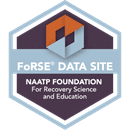Mental health, once a taboo subject, has only been talked about openly for the past few decades. Mental health advocates and educators are working together to normalize mental health by sharing the facts about the importance of treatment. Throughout this process, we have gained a lot of knowledge about how mental health education has fought stigmas, changed policy, and encouraged healing. Here’s how you can help normalize mental health in your community.
The Impact of Combating Ignorance
Thankfully, education has lessened the cultural stigma against mental illness, although there is still more work to be done. Before mental health was discussed openly, many people feared getting help. They were afraid of what the world would think if they knew about the struggles they were facing. Ignorance and silence caused far too many people to go undiagnosed and face hardships that led to co-occurring disorders, such as substance use, and worsened their symptoms – sometimes making it impossible to function, let alone thrive.
Open conversations on social media, education campaigns, and fundraising events have led to a change in the public perception of those who have mental health disorders. As a result, healthcare professionals can provide proper treatment, politicians can make informed policies, and people with mental health conditions (including those who use substances to cope with their symptoms) can get the help they need.
Have Honest Conversations
If you, your client, or your loved one has a mental health disorder, encourage them to have honest conversations about the impact and reality of their mental health. Sharing your story and telling others what it’s like to live with mental health disorder can help dispel myths and change the perceptions created by television shows and movies. Your story adds the human element that so many of these media stereotypes lack.
Contribute to Causes That Support Mental Health Research
Some ignorance even exists on the scientific level. There are some aspects of mental health that aren’t well-researched, and studies can be limited due to funding. Scientists want to study as much as they can about their field. But if their institution isn’t able to fund the research, then it might not be able to happen. You can make a difference by contributing to fundraisers or donating money to causes that support mental health research. By lessening the gaps of knowledge, we can help healthcare professionals provide the best possible care based on scientifically proven research.
Make Education Accessible
Unfortunately, there are many barriers that keep people from learning about mental health disorders. A person might not be able to access knowledge about their own mental health disorder because they cannot access the internet, are unable to afford higher education, or the information is not available in their language. The person could also be suffering from addiction in addition to their mental health issues. Addiction is a common co-occurring disorder, especially for people who use substances to cope with their mental health symptoms.
Understanding what is keeping someone from learning about mental health can be vital to their survival, and you can become a lifesaver once those barriers are acknowledged and removed. If you plan to organize an awareness campaign, be sure to consider which communities might need that information the most.
Education Saves Lives
The 12th Step, which is the last step in the highly effective 12-Step program of recovery, echoes this obligation we have to educate others. The 12th Step reads as follows: “Having had a spiritual awakening as the result of these steps, we tried to carry this message to other addicts, and to practice these principles in all our affairs.” The key message here is that the Twelve Steps have changed your perspective, so now it’s your turn to carry the torch and educate others. It’s up to you to share your message with others who need to know what you’ve been through and how recovery has changed and improved your life.
Mental health education works in the same way. Unfortunately, many people don’t know enough about mental health beyond what they’ve learned through media depictions or misinformed conversations. Education that includes not only the facts but personal experiences creates a true and honest picture of mental health, addiction, and the recovery process. Some people do not realize how badly they need help, or if they do, they don’t know where or how to find it. Educating others about mental health and providing credible resources and support can save a person’s life. We see it every day in recovery, and we want to help others see it, too.
Ignorance about mental health and addiction is the very thing that causes widespread fear and shame. Those who do not understand what they are going through or are afraid to get help lose the valuable opportunity to change their lives. Thankfully, education campaigns have worked tirelessly to prevent ignorance in communities that are suffering. If education is your passion and you hold your community close to your heart, now is the time to dispel the myths and stereotypes that hurt people’s chances of getting help. Keeping education accessible and contributing to these conversations can remove the gap between what we know and what we don’t know about mental health and addiction recovery. You have a lot more power than you think. Here at Jaywalker Lodge, we help men who are struggling with addiction learn the tools and resources they need for lasting sobriety, and that includes protecting their mental health. To learn more, call us now at (866) 529-9255.



As Chief Executive Officer Bill provides leadership and manage all day-to-day operations of Jaywalker Lodge, an extended care residential addiction treatment program for adult men.




